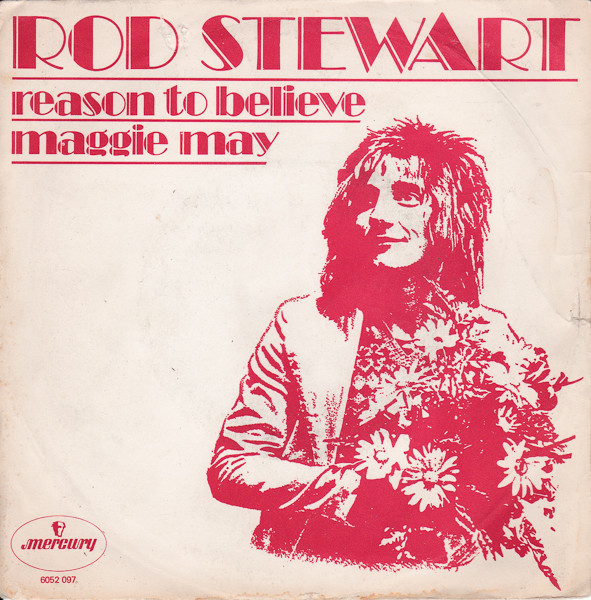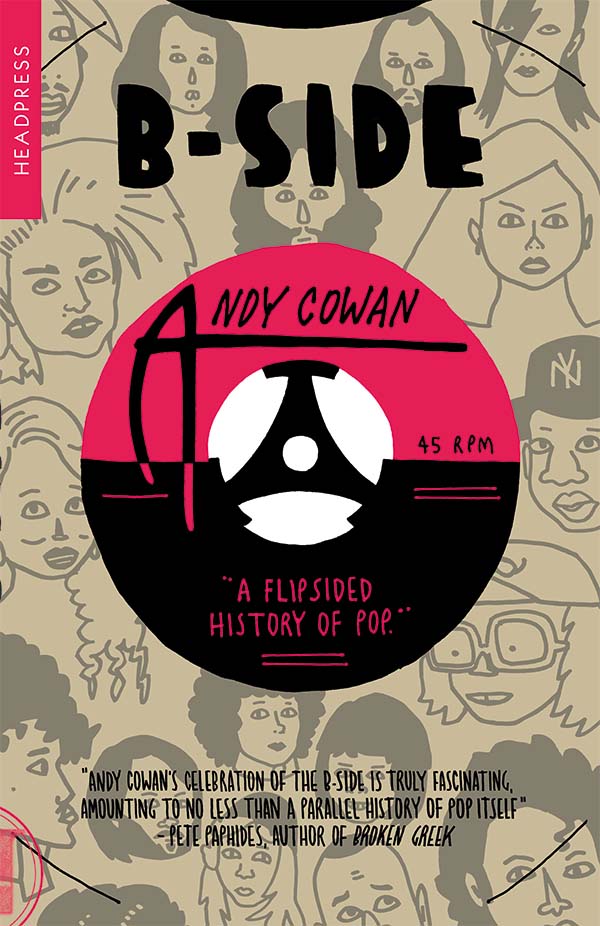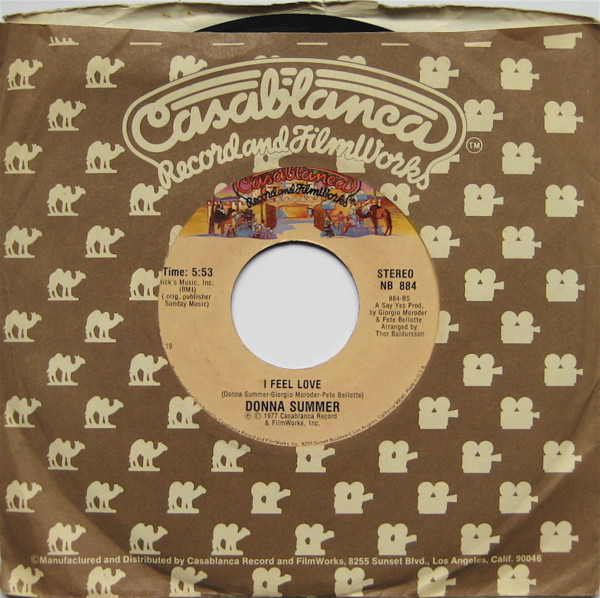Music journalist and author Andy Cowan presents us with 10 classic B-sides that broke on through to the other side
Some artists hide the real gold on their B-sides. Many don’t. I should know, I spent the best part of two years burrowing through countless flips – the good, the bad, the ugly, the actively insane – researching my first book B-Side: A Flipsided History Of Pop.
What is certain is that without the B-side – a quirk of formatting that dates back to the double-sided 78s of the 1910s – we would be bereft of the following pop staples. And if you are already aware these songs started life as B-sides, it begs another question: can you remember the original A-sides?
Mona Lisa
Nat King Cole
Capitol (1950)
Badgered into singing by a big-spending client at a Los Angeles nightclub in the late 1930s, jazz pianist Nat King Cole made it a crucial part of his armoury. Written, alongside its A-side, for Paramount film Captain Carey, Cole’s suave, sophisticated paean to “the lady with the mystic smile” in Leonardo da Vinci’s famous painting made the most of his velvety vocal charms, a deal sealed by his silky piano vamps and Nelson Riddle’s gentle string arrangement. Embraced by radio DJs after Cole and its writers (Ray Evans and Jay Livingston) embarked on a Paramount press junket, it became his biggest hit and a Great American Songbook staple.
(We’re Gonna) Rock Around The Clock
Bill Haley & His Comets
Decca (1954)
Looking a bit like your dad after six pints, 30-year-old ex-country musician Bill Haley was rock ’n’ roll’s least likely breakout star. His B-side take on Rock Around The Clock, a song that had ignited recent live shows, had a difficult birth, with Haley fudging the two takes he was allowed but being rescued by an in-house engineer’s keen splicing skills. A song that flopped as an A-side earlier for Sonny Dae And His Nights, Haley’s speedier version was headed in the same direction before Richard Brooks, director of B-movie Blackboard Jungle, decided to run it alongside the film’s opening credits. The audience responded by dancing in the aisles and rock ’n’ roll, as we know it, had lift-off.
Green Onions
Booker T. & the M.G.’s
Volt (1962)
As Stax Records’ house band Booker T. & the M.G.’s played on a blizzard of hits for Sam And Dave, Wilson Pickett and Otis Redding during the Memphis label’s 60s heyday. It was not unusual to find Stax supremo Jim Stewart demanding a fresh B-side at the 11th hour, and this time Booker T. came to the rescue, playing a minor key 12-bar blues riff on Hammond organ as the rest improvised around him. In just a couple of takes Al Jackson had cooked up a hypnotic beat, Lewis Steinberg added a stalking bassline and Steve Cropper delivered a killer blow with his stabbing Telecaster. The M.G.’s became aware of its power when DJ Rueben Washington played it back-to-back on his WLOK radio show, UK success arriving much later, via the Who’s rock opera Quadrophenia.
Unchained Melody
The Righteous Brothers
Philles (1965)
The first white vocal act on Phil Spector’s Philles imprint, Californians The Righteous Brothers were still new boys when they hit big with 1964’s You’ve Lost That Lovin’ Feelin’, thanks, in part, to Spector’s colossal wall-of-sound production. As much as he was a control freak, Spector was also a glory hunter – obsessed with getting the right sound on A-sides, but often indifferent to B-sides or album tracks, letting others pick up the slack. It allowed resident baritone Bill Medley to take the producer’s chair on Unchained Melody (theme to 1955 prison film Unchained), Medley echoing Spector’s orchestral ambience as Bobby Hatfield’s falsetto soared to its chills-giving grand finale. Spector was irate that the B-side garnered most play, but his very public protestations fell on deaf ears.
Maggie May
Rod Stewart
Mercury (1971)
Acclaimed as singer with the Jeff Beck Group and The Faces, Rod Stewart’s solo career was going nowhere at the start of the 1970s. Shuffled onto a B-side by a label who complained “it didn’t have a melody”, the chorus-free, mandolin-led Maggie May was a rites-of-passage romp about Stewart losing his virginity to an experienced seductress at the Beaulieu Jazz Festival. As Stewart’s aching rasp of a voice mingled quiet triumph with rueful regret, its unconventional structure sparked the interest of daytime DJs. Despite Lindisfarne’s Ray Jackson laying down its unforgettable mandolin riff, Stewart forgot to credit him on parent LP Every Picture Tells A Story, prompting a legal threat.

You Sexy Thing
Hot Chocolate
Rak (1975)
The UK’s answer to Phil Spector, producer and label impresario Mickie Most had form when it came to putting great tracks on the wrong side. He had buried Lulu’s US number one To Sir, With Love on a B-side because he didn’t select it for her, and relegated The Arrows’ I Love Rock ’N’ Roll to the back of Broken Down Heart. Most was equally resistant to Errol Brown’s slinky tribute to his wife Ginette, at first feeling it was too lightweight to be a hit. A juggernaut of hook-laden pop disco that set the template for the rest of the multiracial band’s career, Most eventually relented and a remixed version just missed number one, thanks to Queen’s immovable Bohemian Rhapsody.
I Feel Love
Donna Summer
Casablanca (1977)
“This single is going to change the sound of club music for the next 15 years,” gushed Brian Eno to David Bowie after hearing I Feel Love for the first time. While Eno’s estimate would prove ridiculously conservative, it’s doubtful he was aware that a song designed as ‘music of the future’ (from an ambitious album-length tour of dance history, I Remember Yesterday) had been all but thrown to the dogs by blinkered label execs in favour of a chart-friendly ballad. The perfect symbiosis of Giorgio Moroder’s precision mix of synthesised rhythms and arpeggiated basslines with Summer’s ethereal paean to a new lover, I Feel Love felt like it was coming from another dimension entirely.
Push It
Salt-N-Pepa
Next Plateau (1987)
Thrown together in double-quick time in the tiny damp bathroom musician Fresh Gordon used as a vocal booth, New York rappers Cheryl James (Salt) and Sandra Denton (Pepa) had no idea that their frisky rhymes on Push It would define their future. The part-time telephone operators at Sears department store might well have become a hip-hop footnote had San Francisco DJ Cameron Paul not championed the song, winding in his own bassline for a remix on his KMEL Bay Area radio show. Even when the maternity ward favourite snowballed from there, Salt-N-Pepa remained sceptical, concerned its pop sensibilities would ruin their street credibility. They didn’t worry for long.
Born Slippy .NUXX
Underworld
Junior Boy’s Own (1995)
A squiffy night in London’s Soho and the need to fill a B-side’s empty grooves would prove Underworld’s commercial zenith. A poetically fractured take of singer Karl Hyde’s struggles to catch his last train home to Romford, filtered through his struggles with alcoholism, he recorded its vocal in a single frenetic take, resorting to its infamous “Lager, lager, lager, lager…” refrain whenever he lost his place. Although it became a minor club hit under its own steam, Danny Boyle’s decision to pair it with the climactic scene in Trainspotting (despite Underworld’s initial reservations) sent it supernova. It sparked an ongoing relationship with the filmmaker that peaked with 2012’s Summer Olympics’ opening ceremony.
Good Riddance (Time Of Your Life)
Green Day
Reprise (1996)
Written in anger at a failed relationship, Green Day’s best-known song is far from the cosy reflection on past glories that many have it pegged. So cathartic that its writer Billie Joe Armstrong “didn’t really think of it as being for an album or anything”, he was happy to let his bad-tempered strum-along surface on the B-side of a German single most fans would never buy. Daintily re-recorded for 1997’s Nimrod alongside a string section, at producer Rob Cavallo’s insistence, its misty-eyed talk about forks in the road and lessons learnt in time would create an A-side mega-hit, to the vocal chagrin of many of their earliest supporters.
The original A-sides are: 1. The Greatest Inventor Of Them All 2. Thirteen Women (And Only One Man In Town) 3. Behave Yourself 4. Hung On You 5. Reason To Believe 6. Blue Night 7. Can’t We Just Sit Down And Talk It Over 8. Tramp 9. Born Slippy 10. Brain Stew/Jaded
B-Side: A Flipsided History of Pop by Andy Cowan is published by Headpress. Andy also writes a weekly B-side blog at b-side.website

